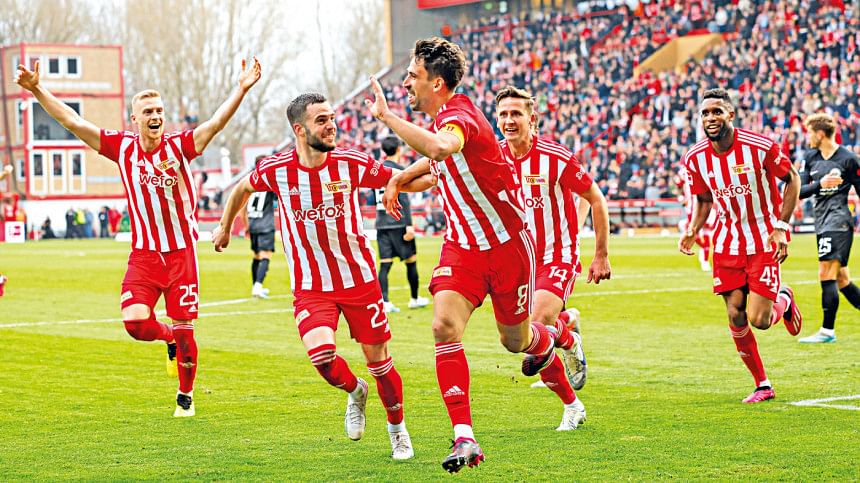A higher purpose

While takeovers from wealthy financers have been very much in vogue across top-tier European leagues, one that continues to do its best to resist that trend is the Bundesliga in Germany.
Although the German Football Association (DBF) recognised the need for outside investment and abolished the law that clubs could only be owned by members' associations, they found a place just north of the middle ground and introduced the "50+1 rule". It allowed investment, but ensured that the members would always maintain a majority of voting rights.
The only clubs in the Bundesliga that see private entities hold majority stakes are Bayer Leverkusen, owned by pharmaceutical company Bayer, and VfL Wolfsburg, owned by Volkswagen -- solely because the clubs were owned by those companies before the inception of the Bundesliga itself.
And while clubs such as RB Leipzig have managed to find loopholes to circumvent the rule, it has never worked against the league as a whole. In fact, it could be argued that the rule is what makes the Bundesliga boast one the highest average attendances in world football and enables the infectious fan culture.

The level of football has not suffered greatly either and there is true competition all the way down the ladder. This season, Union Berlin and SC Freiburg became the 12th and 13th German teams to reach a Europa League round of 16. No other nation has had as many.
The caveat, of course, is when you look at the top of the food chain. It has been almost 11 years since Germany saw a champion other than Bayern Munich.
While that could all change this season with Bayern Munich in second place, one point behind Borussia Dortmund with only nine games left, the perennial German champions could restore the natural order when Dortmund travel to Munich on April 1.
There is reason to believe Bayern are the most exposed they have been in recent years, especially after coach Julian Nagelsmann lambasted a "snitch" at a press conference after German outlet Sport Bild published a couple of pages from his playbook for the game against VFL Bochum.
But for fans of teams like Freiburg -- who meandered on in the second tier for 15 years until finally earning promotion to the Bundesliga for the first time in their history in the 1993-94 season -- and Union Berlin, perhaps no trophy would be worthy of the sacrifice they have made to bring their club so far.
When Union were at risk of losing their licence in 2008 because three terraces on the sides of the Stadion An der Alten Försterei had fallen into disrepair, 2,500 fans volunteered to rebuild the stadium. In the early 90s, when their club was on the verge of bankruptcy, fans initiated a blood drive, naming it "Bleed for Union". It was a simple slogan that encapsulated exactly the lengths they were willing to go to.
It was not until the 2018-19 that the club had made its way into the top tier of German football. Since then, they have stubbornly climbed up the table and battled for European spots until, this year, finding themselves in a title race.
Union are five points off the top. Their hopes are slim. The inevitability of Bayern is depressing. Yet, you can rest assured in the knowledge that every person in the stands believes in a collective dream. It is not a dream bound to trophies, but to a simple core philosophy: Iron Union.

 For all latest news, follow The Daily Star's Google News channel.
For all latest news, follow The Daily Star's Google News channel. 



Comments